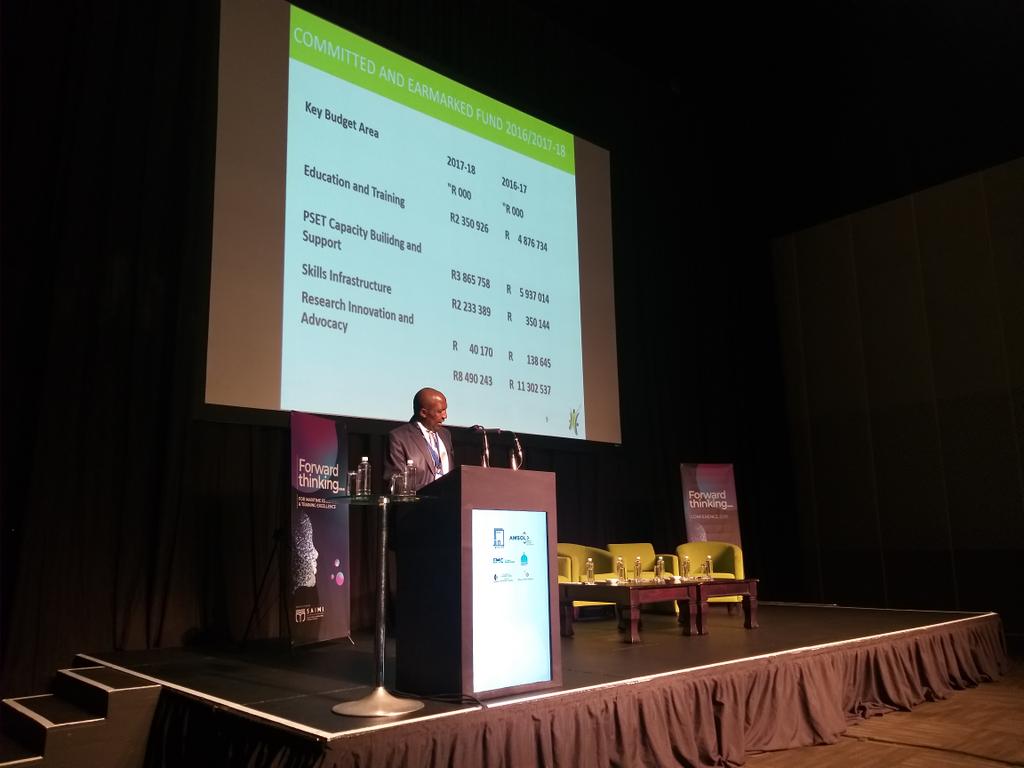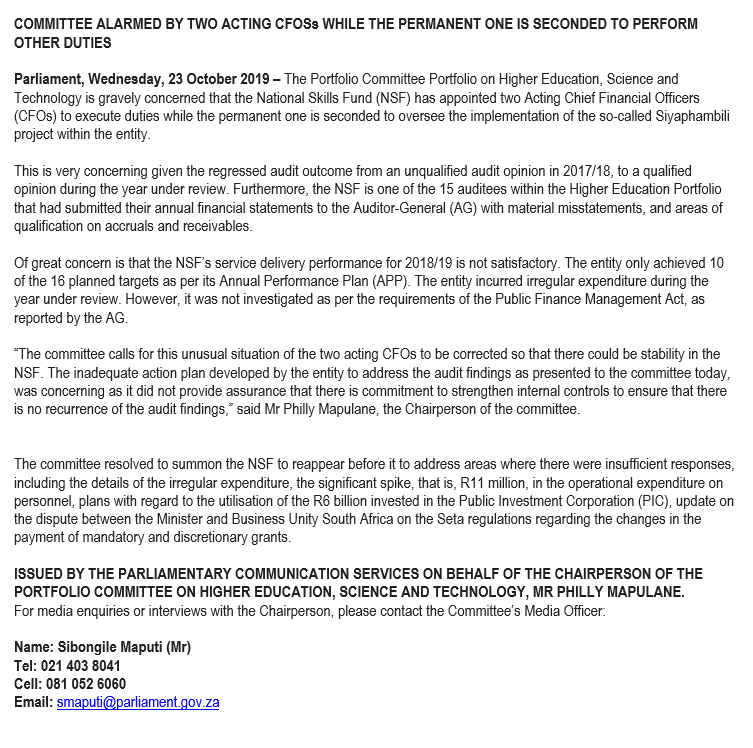Parliament’s Portfolio Committee on Higher Education has expressed alarm that the National Skills Fund (NSF) has appointed two acting Chief Financial Officers, while the permanent person in the post is seconded to oversee the implementation of the Siyaphambili project within the entity.
“This is very concerning given the regressed audit outcome from an unqualified audit opinion in 2017/18, to a qualified opinion during the year under review,” Committee Chairperson Philly Mapulane said.
“Furthermore, the NSF is one of the 15 auditees within the Higher Education Portfolio that had submitted their annual financial statements to the Auditor-General (AG) with material misstatements, and areas of qualification on accruals and receivables.”
The Committee said of “great concern” is that the entity only achieved 10 of the 16 planned targets as per its Annual Performance Plan (APP).
The NSF incurred irregular expenditure of R11mn during the year under review.
However, it was not investigated as per the requirements of the Public Finance Management Act, as reported by the AG.
“The committee calls for this unusual situation of the two acting CFOs to be corrected so that there could be stability in the NSF.
“The inadequate action plan developed by the entity to address the audit findings as presented to the committee today, was concerning as it did not provide assurance that there is commitment to strengthen internal controls to ensure that there is no recurrence of the audit findings,” said Mapulane.

The committee intends to summon the NSF to reappear before it to further elaborate on areas where there were insufficient responses, including the details of the irregular expenditure, the significant spike, that is, R11 million, in the operational expenditure on personnel, plans with regard to the utilisation of the R6 billion invested in the Public Investment Corporation (PIC).
The higher education committee is also seeking an update on the dispute between Minister Blade Nzimande and Business Unity South Africa on the Seta regulations regarding the changes in the payment of mandatory and discretionary grants.








